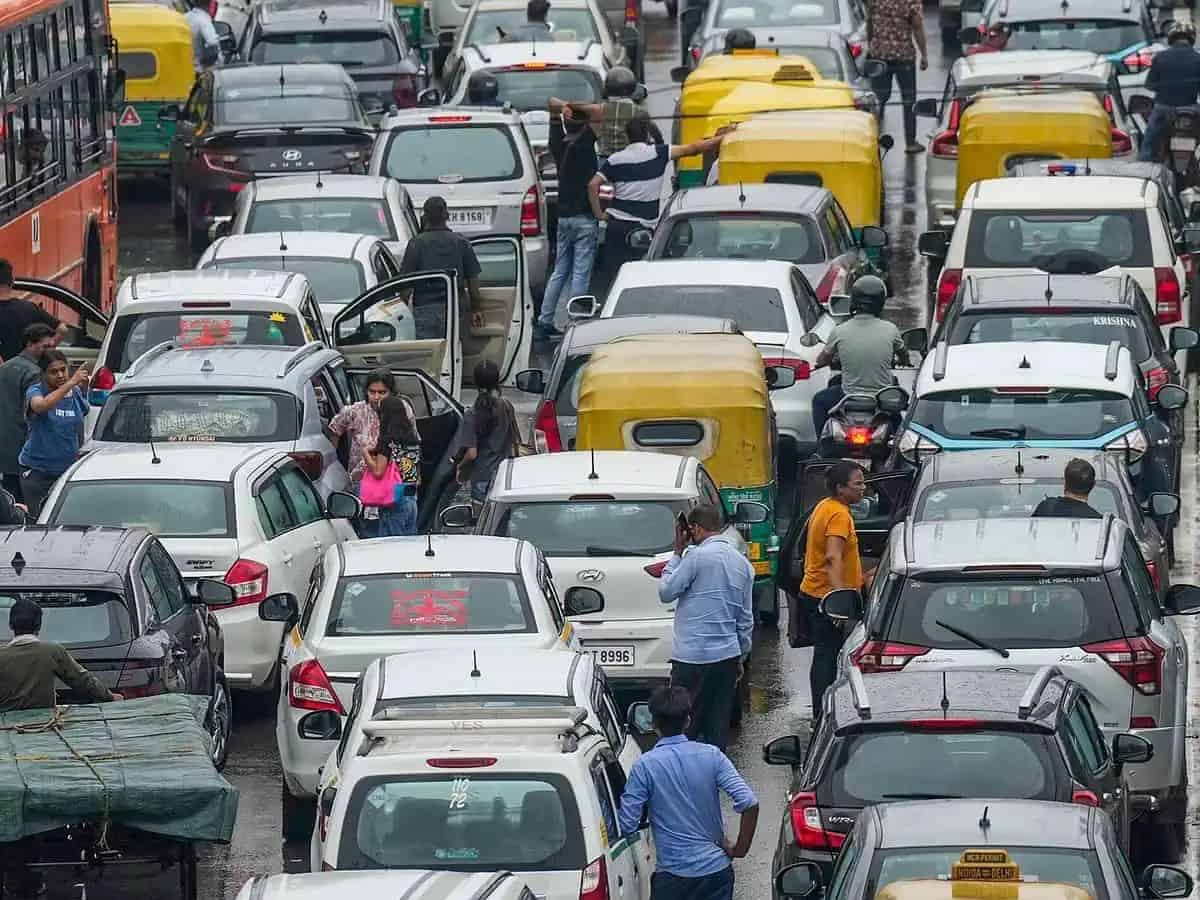
Bengaluru: The Bengaluru city is grappling with a severe traffic crisis as the number of vehicles continues to surge at an alarming rate. With an estimated one lakh vehicles entering and leaving the city daily, traffic congestion has worsened by 20 percent in the last two months alone.
A report by IISc experts reveals that crossing a small signal now takes an average of 15 minutes while navigating a major intersection can consume up to 22 minutes. Bengaluru’s road infrastructure, designed to accommodate a maximum of 50 lakh vehicles, is now overwhelmed, with the current count far exceeding this limit.
Data from the Transport Department paints a grim picture. As of March 31, 2024, Bengaluru had 25,13,294 cars and 78,33,390 bikes, totalling 1,03,46,684 registered vehicles. The previous financial year witnessed a staggering addition of 1,59,239 cars and 47,80,980 bikes, bringing the total new registrations to 6,37,337 vehicles.
A comparison with Delhi highlights the severity of Bengaluru’s situation. While Delhi boasts 41,82,834 cars and 94,96,069 bikes, Bengaluru is rapidly catching up. The state of Karnataka as a whole has 46,76,959 cars and 2,25,30,213 bikes, indicating a potential surge in vehicle numbers for the entire state.
Traffic experts warn that Bengaluru is on the brink of becoming the next Delhi, infamous for its air pollution. The city’s inability to enforce stricter vehicle age limits, as implemented in Delhi, exacerbates the problem. While the government mandates scrapping for government vehicles older than 15 years, there is no such regulation for private vehicles.
The growing traffic congestion is causing immense inconvenience to citizens, impacting productivity, and deteriorating air quality. Urgent measures are needed to address this crisis. Experts suggest implementing the Delhi model of vehicle control, which includes stricter emission norms and mandatory scrapping of old vehicles.
The government must prioritise public transport, invest in infrastructure, and promote sustainable modes of transportation to alleviate the pressure on the city’s roads. Failure to act decisively will lead to a catastrophic collapse of Bengaluru’s infrastructure and quality of life.

